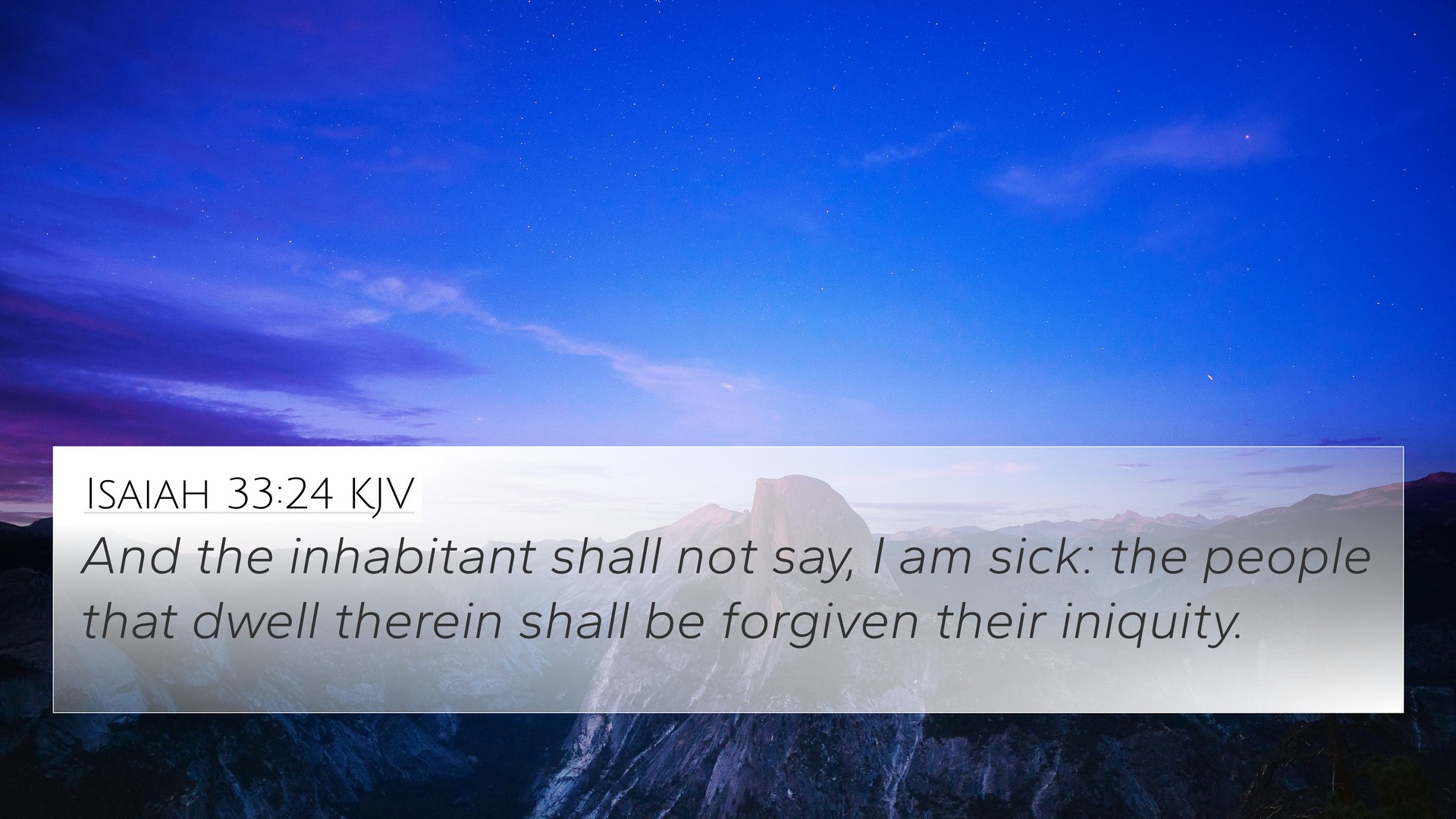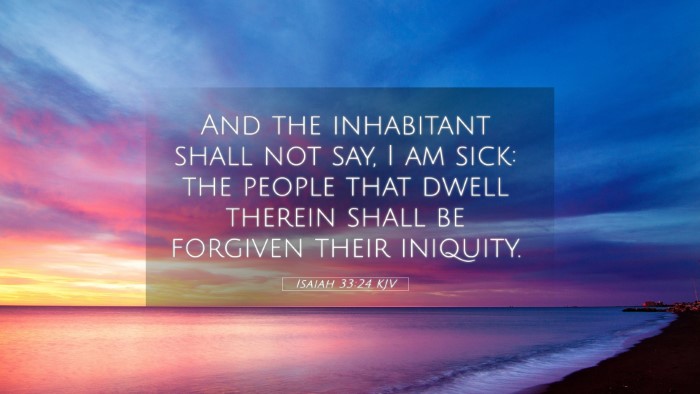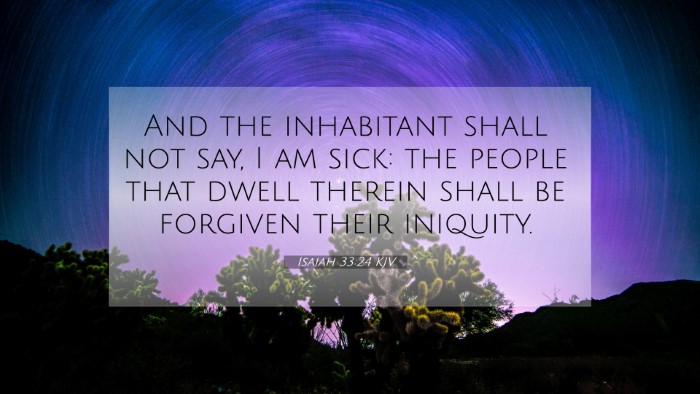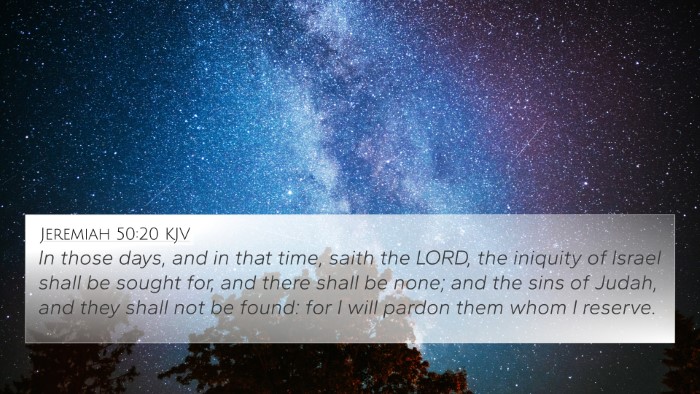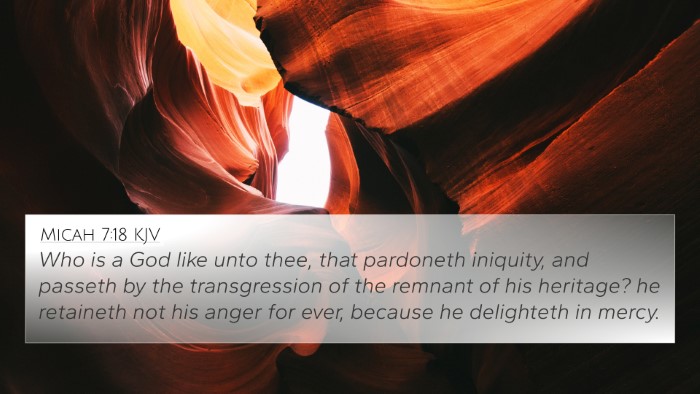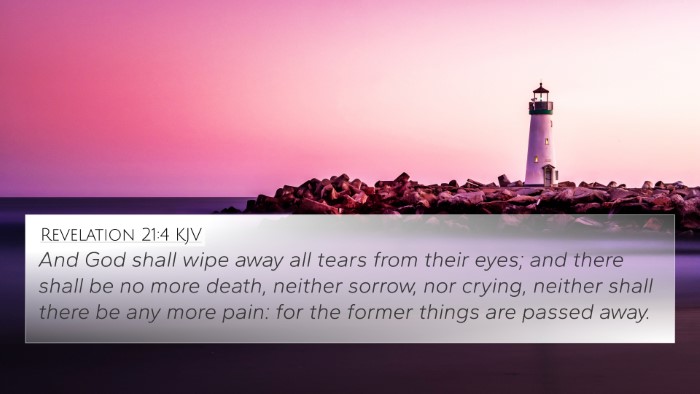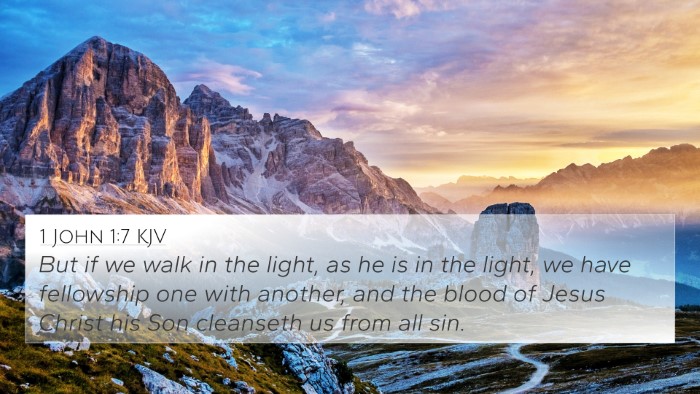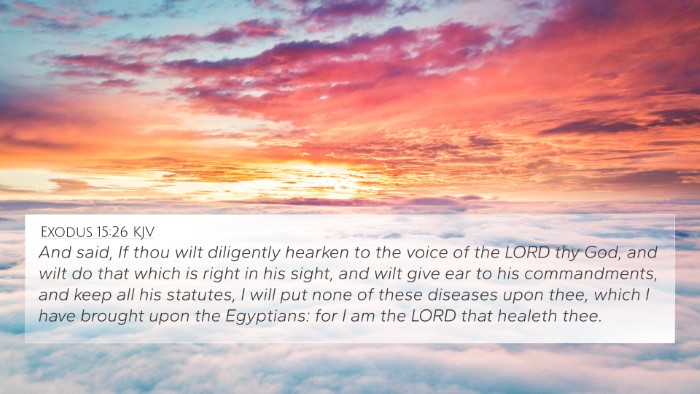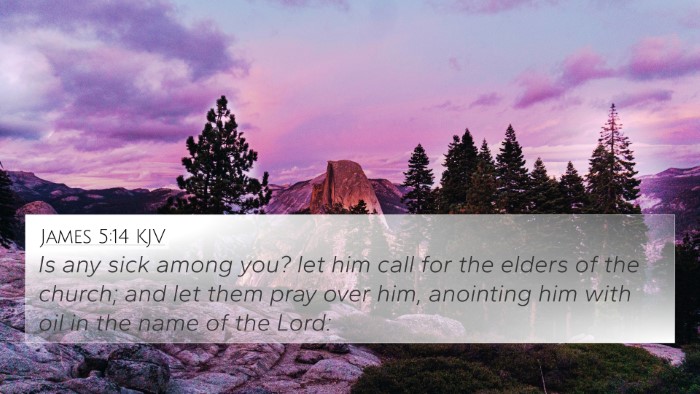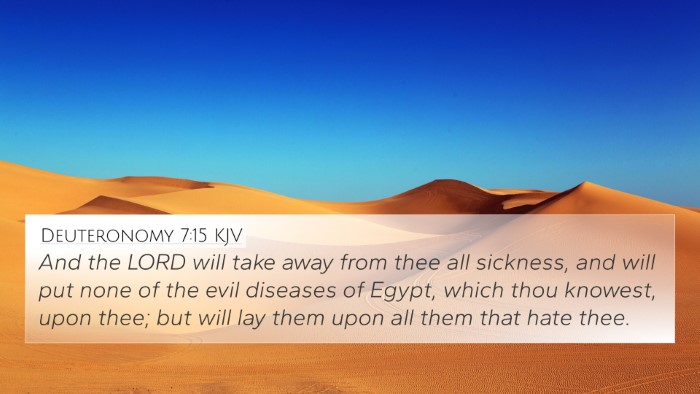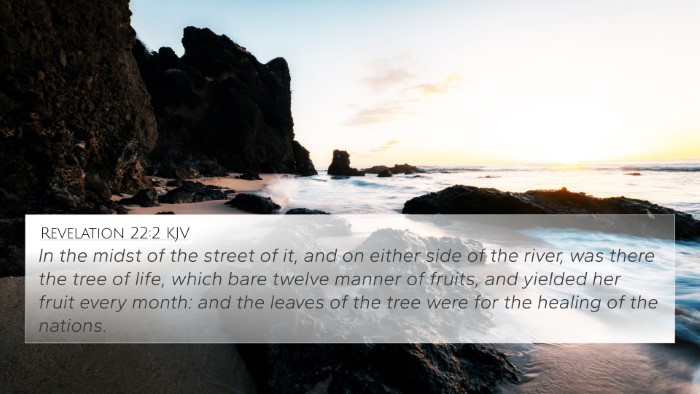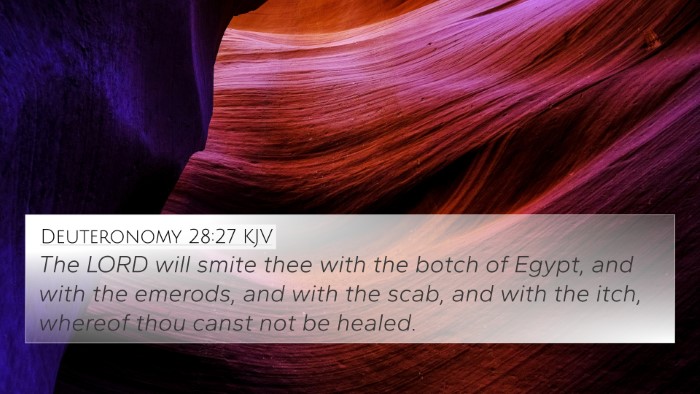Meaning and Interpretation of Isaiah 33:24
Isaiah 33:24 states: "And the inhabitant shall not say, I am sick: the people that dwell therein shall be forgiven their iniquity." This verse conveys a profound message of healing and divine forgiveness that echoes throughout the Scriptures. It presents a picture of restoration for God's people, where sickness and sin are ultimately overcome.
Summary of Insights from Public Domain Commentaries
This analysis draws upon insights from Matthew Henry, Albert Barnes, and Adam Clarke, revealing the rich theological implications of this verse within the broader context of Scripture.
Matthew Henry's Commentary Analysis
Matthew Henry emphasizes the transformative power of God's grace, stating that the promise of forgiveness leads to a state of spiritual wellness and health. In this land of restoration, the inhabitants will not acknowledge their sickness because God's forgiveness has provided them with wholeness. Henry highlights that this forgiveness is a gift that signifies God's mercy and compassion towards His people.
Albert Barnes' Commentary Insights
Albert Barnes elaborates on the communal aspect of healing in Isaiah 33:24. He posits that the absence of sickness among the people is indicative of a collective experience of God’s blessings. Barnes notes that this verse should be interpreted in light of both physical and spiritual dimensions of healing, underscoring the significance of communal restoration in the context of divine favor. The verse presents an ideal future in which sin and its consequences are effectively removed.
Adam Clarke's Interpretation
Adam Clarke provides a detailed understanding of the implications of ‘forgiven their iniquity.’ He suggests that this signifies a holistic rejuvenation of the people, linking the absence of physical ailments to the broader context of spiritual integrity and communal harmony. Clarke also points out that this is reflective of the overall messianic promise found throughout the Scriptures, particularly how it connects with the future hope of ultimate redemption.
Thematic Bible Verse Connections
This verse echoes several other scriptural passages, reinforcing the themes of healing and forgiveness. Below are some significant cross-references that demonstrate the inter-Biblical dialogue surrounding Isaiah 33:24:
- Psalm 103:2-3: "Bless the Lord, O my soul, and forget not all his benefits: Who forgiveth all thine iniquities; who healeth all thy diseases."
- Isaiah 53:5: "But he was wounded for our transgressions, he was bruised for our iniquities: the chastisement of our peace was upon him; and with his stripes we are healed."
- Matthew 9:2: "And, behold, they brought to him a man sick of the palsy, lying on a bed: and Jesus seeing their faith said unto the sick of the palsy; Son, be of good cheer; thy sins be forgiven thee."
- John 5:14: "Afterward Jesus findeth him in the temple, and said unto him, Behold, thou art made whole: sin no more, lest a worse thing come unto thee."
- James 5:15: "And the prayer of faith shall save the sick, and the Lord shall raise him up; and if he have committed sins, they shall be forgiven him."
- Revelation 21:4: "And God shall wipe away all tears from their eyes; and there shall be no more death, neither sorrow, nor crying, neither shall there be any more pain: for the former things are passed away."
- 1 Peter 2:24: "Who his own self bare our sins in his own body on the tree, that we, being dead to sins, should live unto righteousness: by whose stripes ye were healed."
Conclusion
Isaiah 33:24 encapsulates the hope found in the message of forgiveness and healing. Through the shared insights of respected biblical commentators, we see how this verse stands as a testament to God's promise to His people. It beckons us towards a deeper understanding of the relationship between sin, healing, and the redemptive work of God through Christ. These themes resonate throughout the Scriptures, inviting believers to explore further the connections between Bible verses that illuminate the path to spiritual and physical restoration.
Tools for Bible Cross-Referencing
For those interested in delving deeper into the connections between Bible verses, several resources can help in your study:
- Bible Concordance: A tool that allows you to find verses by specific words or themes.
- Bible Cross-Reference Guide: This guide provides insights into related verses and theological themes.
- Cross-Reference Bible Study: Engaging methods to examine how verses relate globally in the Scriptures.
- Bible Reference Resources: A comprehensive library of materials that aid in spiritual study.
Encouragement for Further Study
If you are eager to learn how to find cross-references in the Bible or identify connections between the Old and New Testaments, consider using a systematic approach by integrating tools and methods mentioned above. By doing so, you will cultivate a richer understanding of Scripture that deepens your faith and enhances your spiritual journey.
